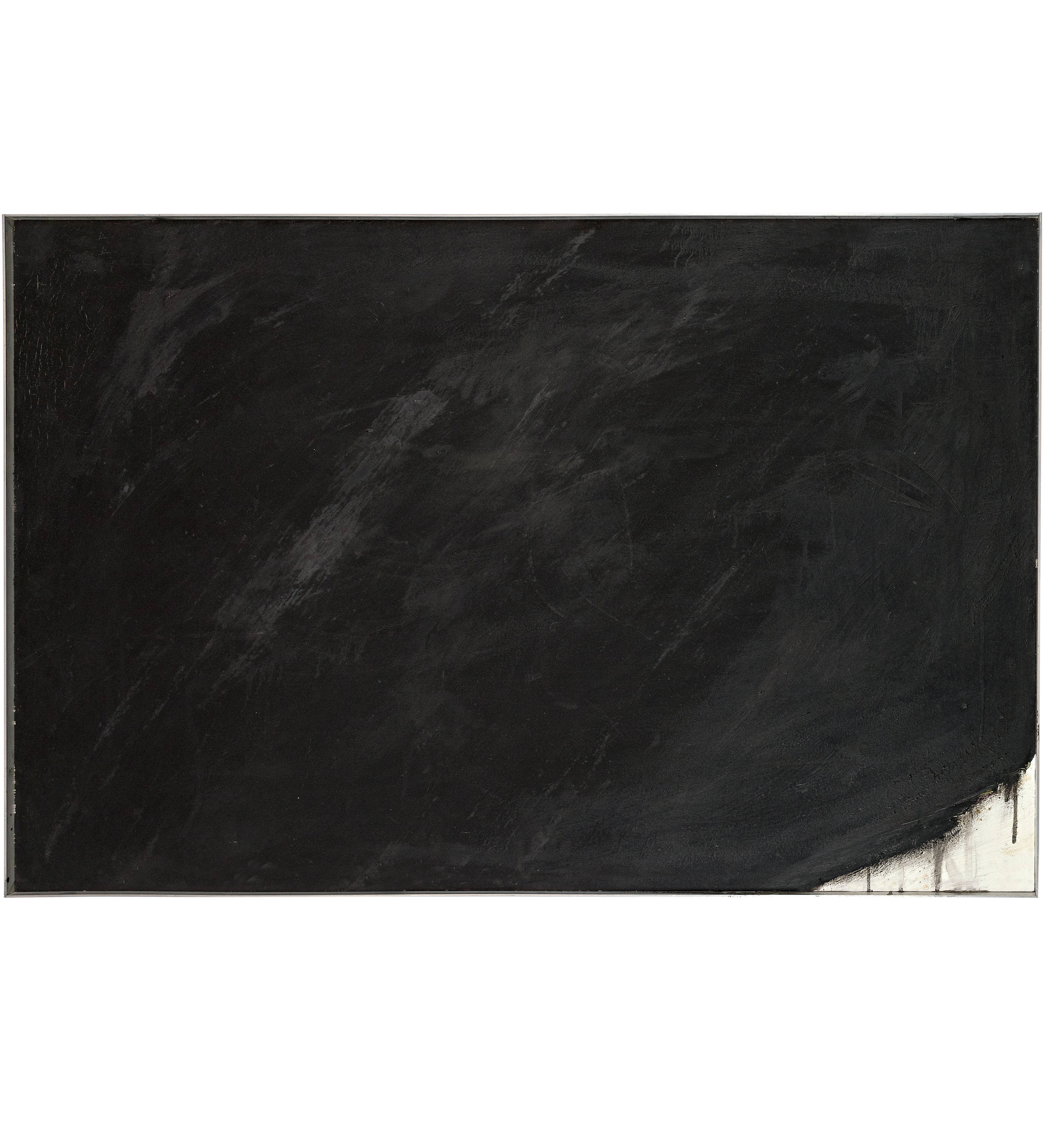- EN
Log in
- Live Auctions
- Past auctions
- More
- Gallery
- Art Dealing
- Publishing
- Kornfeld today
- The Story of Kornfeld
- Information
Note: The image cannot be displayed for legal reasons. For more information, see the PDF of the catalogue: Link to PDF
Baden bei Wien 1929 - lebt in Wien
1958/1959
Oil on chipboard
82.5x125 cm
Signed and dated twice on the reverse by the artist "A. Rainer / 58/59" and "A. Rainer 59" respectively
The painting is known to the Arnulf Rainer Archive, Vienna
M. Knoedler, Zurich, Inv.-Nr. 225 K / Tuske Fine Art, Zurich, Inv.-Nr. 0312, acquired there in 1983 by
Hess Art Collection, from there to
Private collection Switzerland
Dieter Ronte, Hess Collection, Bern/Stuttgart 1989, cat. no. 102, pag. 162 reprod.
Impeccable condition
Arnulf Rainer's artistic talent became apparent at an early age. However, at his parents' request, he first studied structural engineering before attending the Academy of Applied Arts in Vienna. Initially he felt drawn to Surrealism and accordingly went on a "pilgrimage" to André Breton in Paris with Maria Lassnig in 1951. Disappointed by Breton, he instead became enthusiastic about the art movement of Informel. From then on he created abstract pictorial forms called "microstructures" and "atomisations". These later became "centralisations" and "central and vertical formations". Between 1953 and 1959, he lived ascetically in the unfurnished villa of his parents in Gainfarn near Bad Vöslau in Lower Austria, where he initially created strictly monochrome black "reductions" and proportion studies, which eventually developed into "overpaintings". Rainer painted over his own and other people's pictures as well as photographs. Originally they were created for lack of material, but soon they mutated into a kind of happening, for which artist friends such as Sam Francis, Georges Mathieu or Victor Vasarely made their paintings available to him.
The present painting is a typical monochrome overpainting in black. Only in the lower right corner does part of the white grounding come through.
1958/1959
Öl auf Holzspanplatte
82,5x125 cm
Rückseitig vom Künstler zweifach signiert und datiert "A. Rainer / 58/59" bzw. "A. Rainer 59"
Das Gemälde ist dem Arnulf Rainer-Archiv, Wien, bekannt
M. Knoedler, Zürich, Inv.-Nr. 225 K / Tuske Fine Art, Zürich, Inv.-Nr. 0312, dort 1983 erworben von
Hess Art Collection, von dort an
Privatsammlung Schweiz
Dieter Ronte, Hess Collection, Bern/Stuttgart 1989,
Tadelloser Zustand
Die künstlerische Begabung Arnulf Rainers fiel bereits früh auf. Er absolvierte aber zunächst auf Wunsch der Eltern ein Hochbaustudium, bevor er die Akademie für angewandte Kunst in Wien besuchte. Anfangs fühlte er sich zum Surrealismus hingezogen und ging dementsprechend 1951 mit Maria Lassnig auf "Pilgerfahrt" zu André Breton nach Paris. Enttäuscht von Breton begeisterte er sich vielmehr für die Kunstrichtung des Informel. Fortan schuf er abstrakte Bildformen, "Mikrostrukturen" und "Atomisationen" genannt. Aus denen wurden später "Zentralisationen" und "Zentral- und Vertikalgestaltungen". Asketisch lebte er zwischen 1953 und 1959 in der möbellosen Villa seiner Eltern im niederösterreichischen Gainfarn bei Bad Vöslau und schuf dort zunächst streng monochrome schwarze "Reduktionen" und Proportionsstudien, aus denen sich schliesslich die "Übermalungen" entwickelten. Rainer übermalte eigene und fremde Bilder sowie Fotos. Ursprünglich waren sie aus Materialmangel entstanden, bald jedoch mutierten sie zu einer Art Happening, wofür Künstlerfreunde wie Sam Francis, Georges Mathieu oder Victor Vasarely ihm ihre Gemälde zur Verfügung stellten
Das vorliegende Gemälde ist eine typische monochrome Übermalung in Schwarz. Lediglich in der rechten unteren Ecke dringt ein Teil der weissen Grundierung hervor
Note: The image cannot be displayed for legal reasons. For more information, see the PDF of the catalogue: Link to PDF

